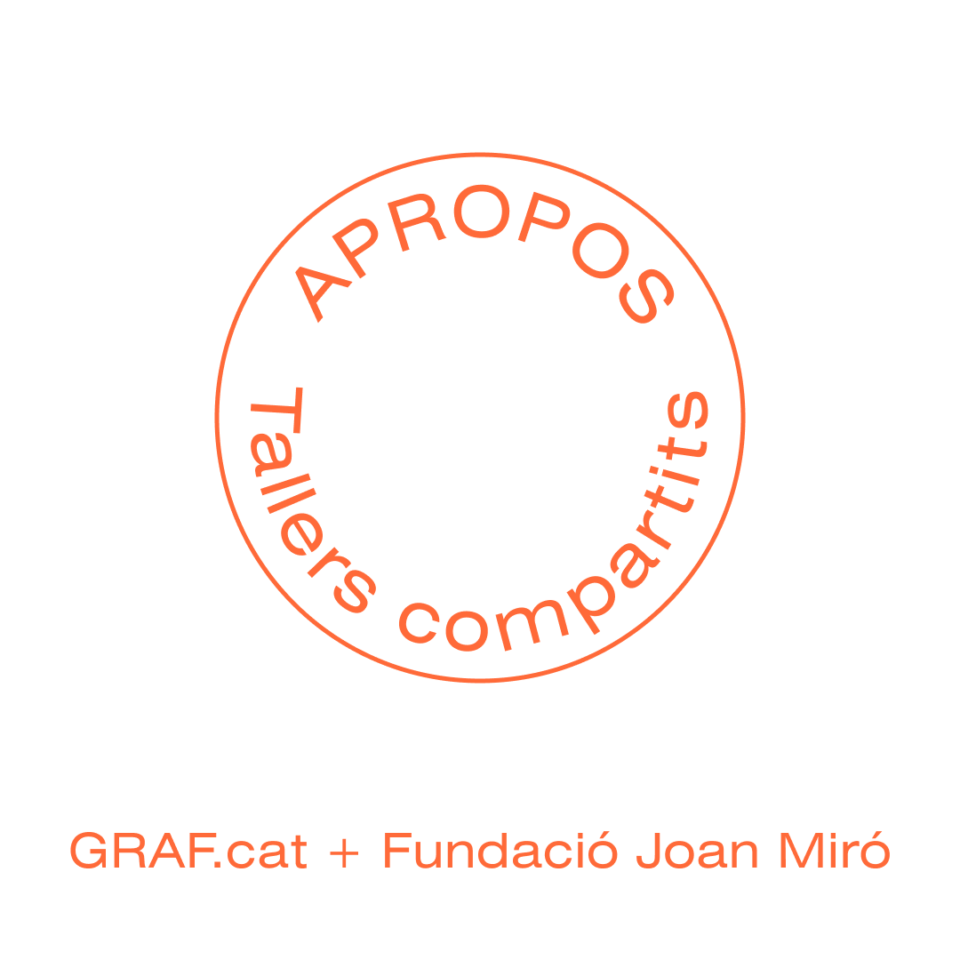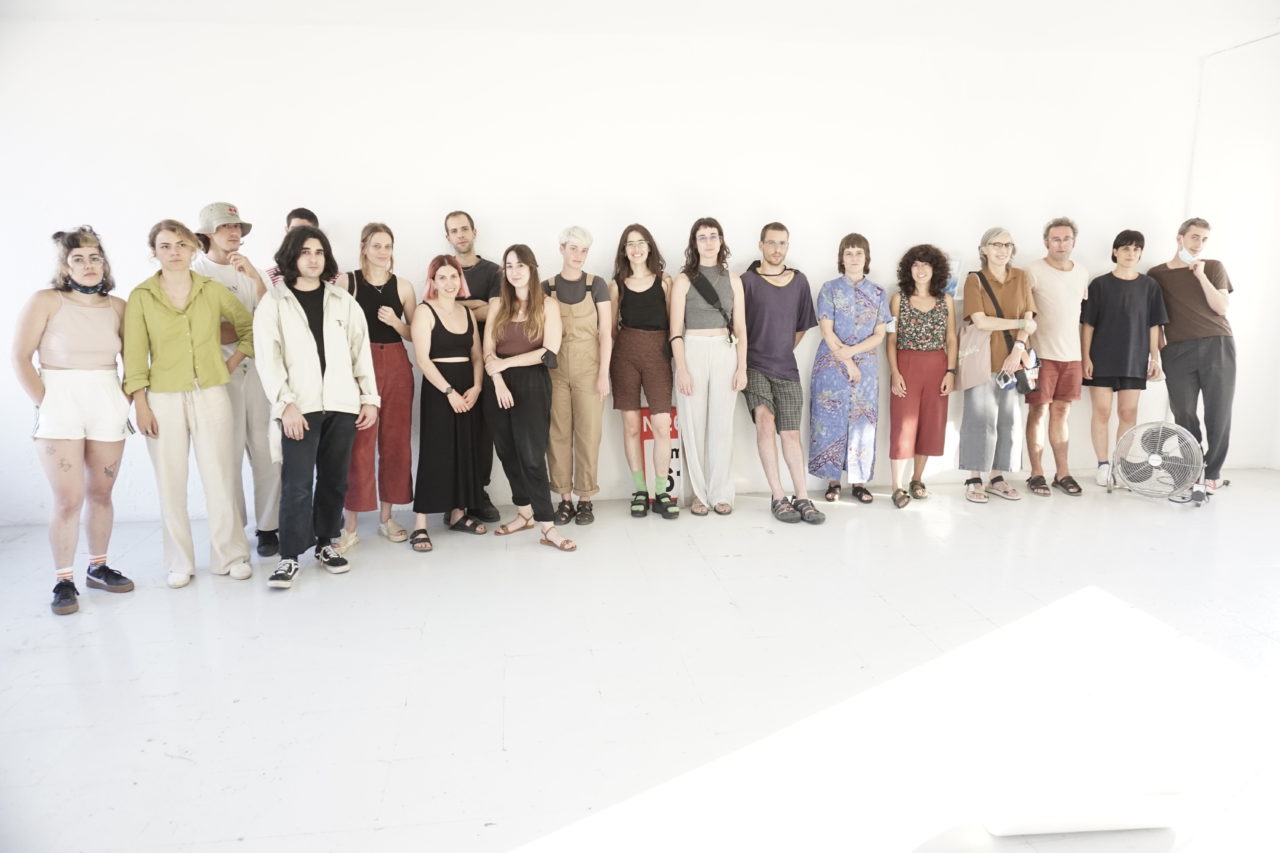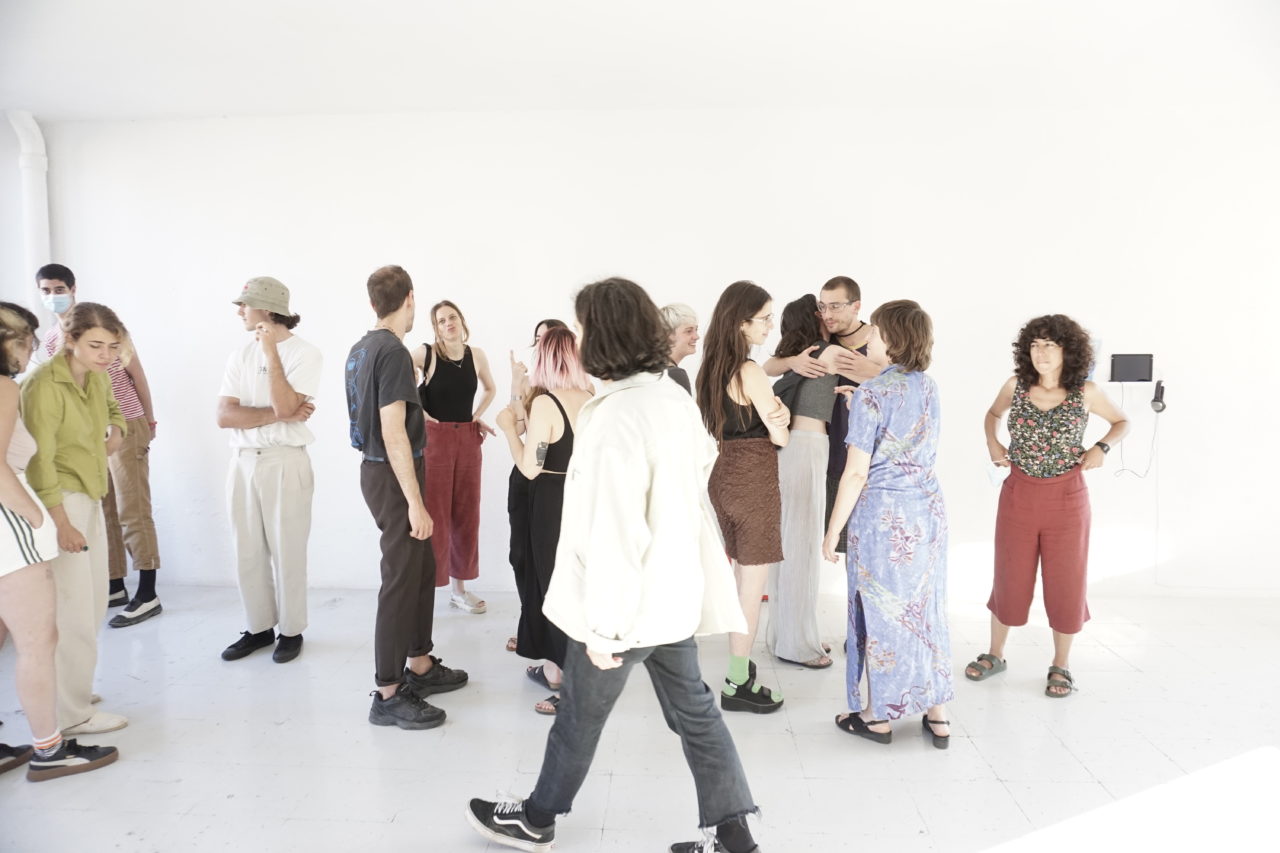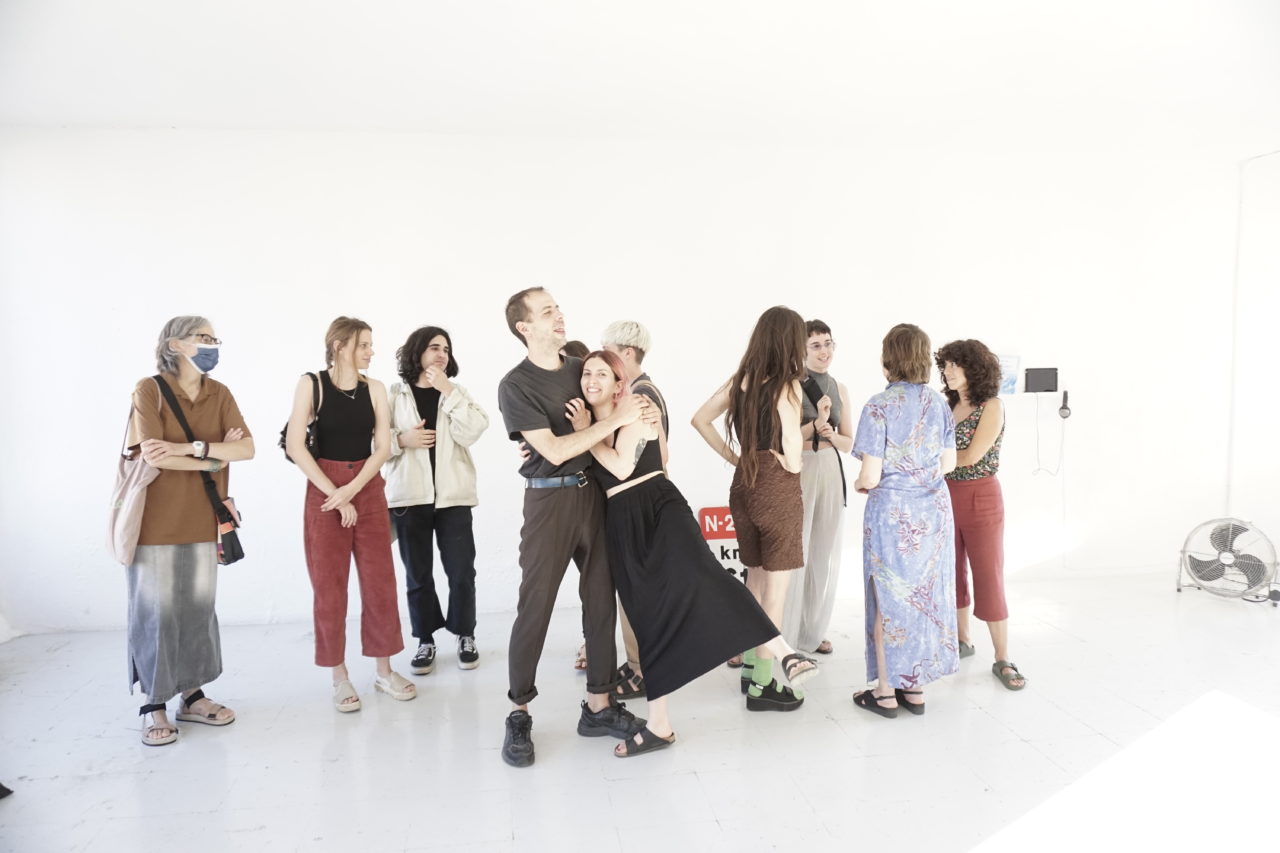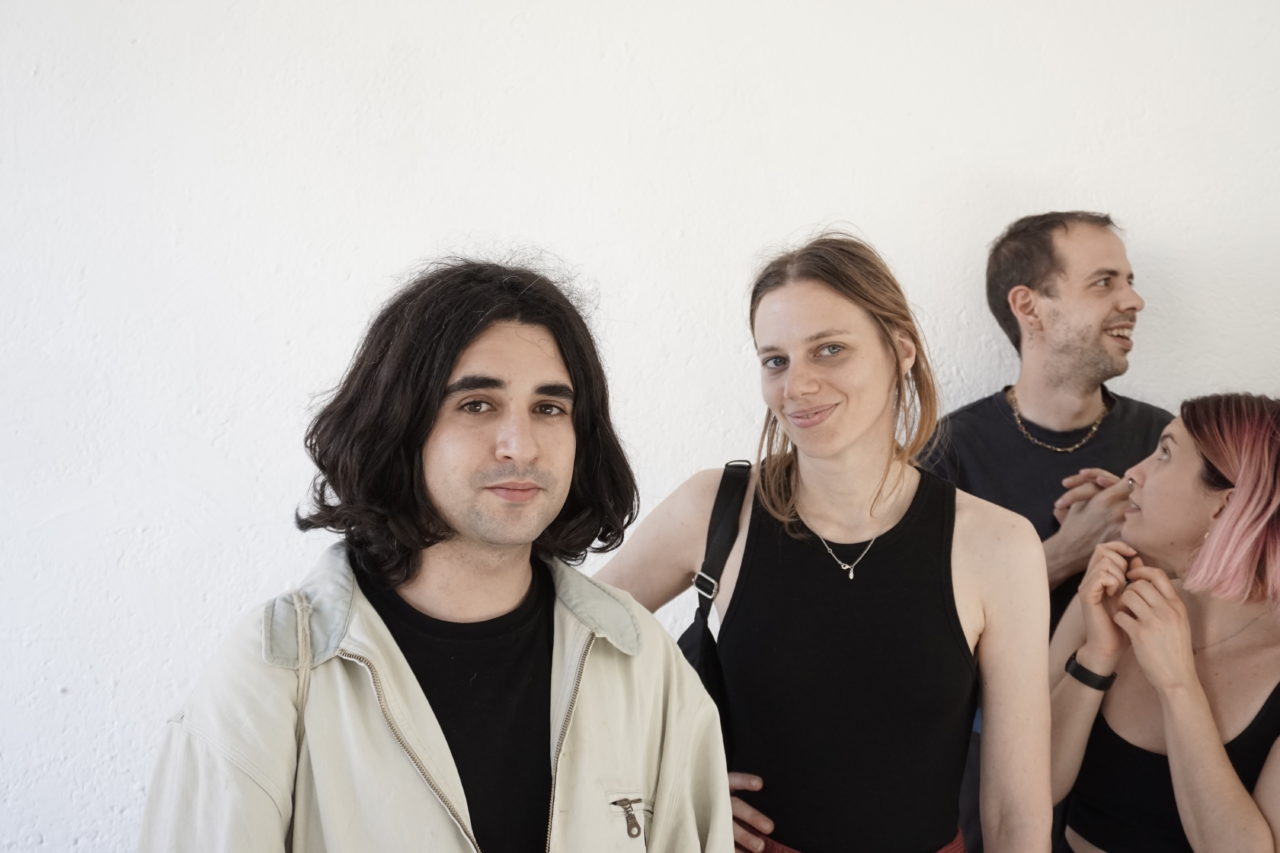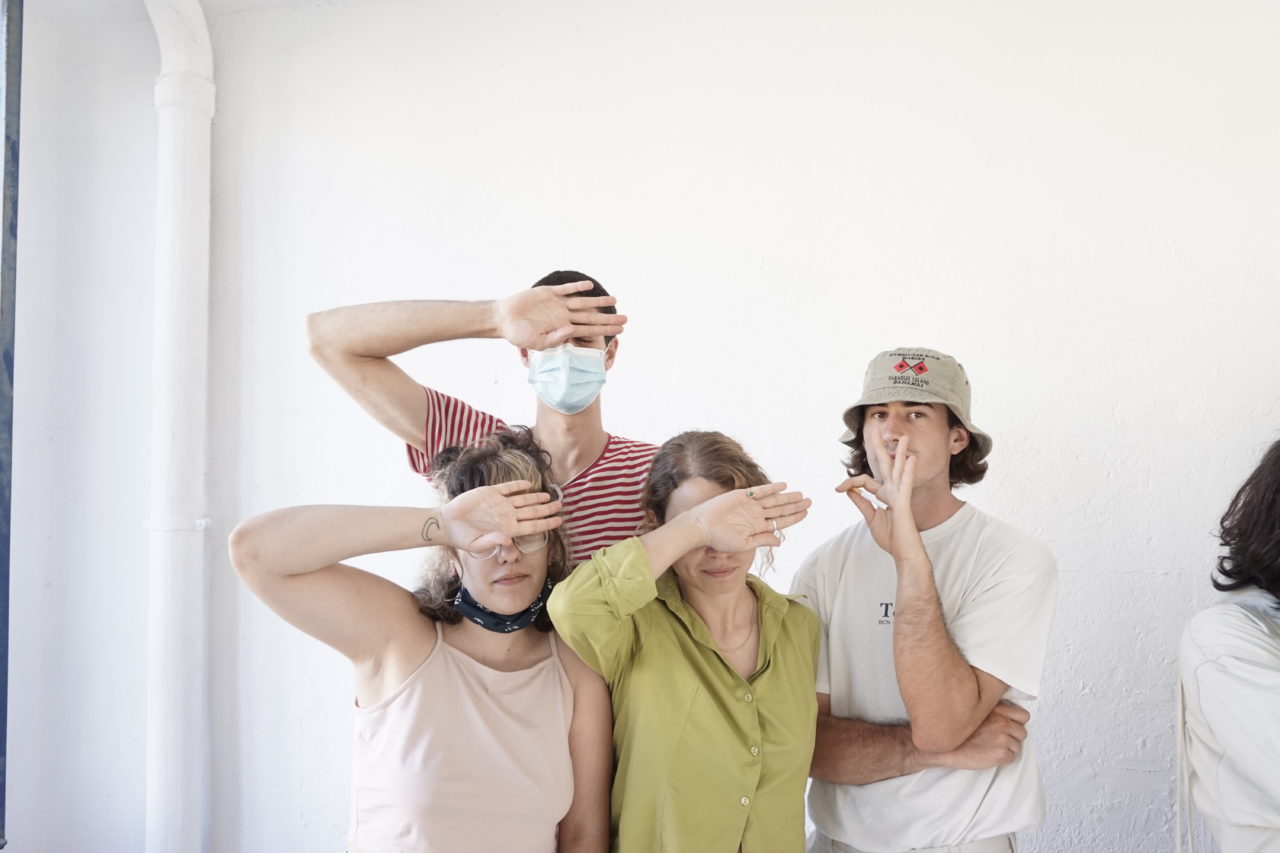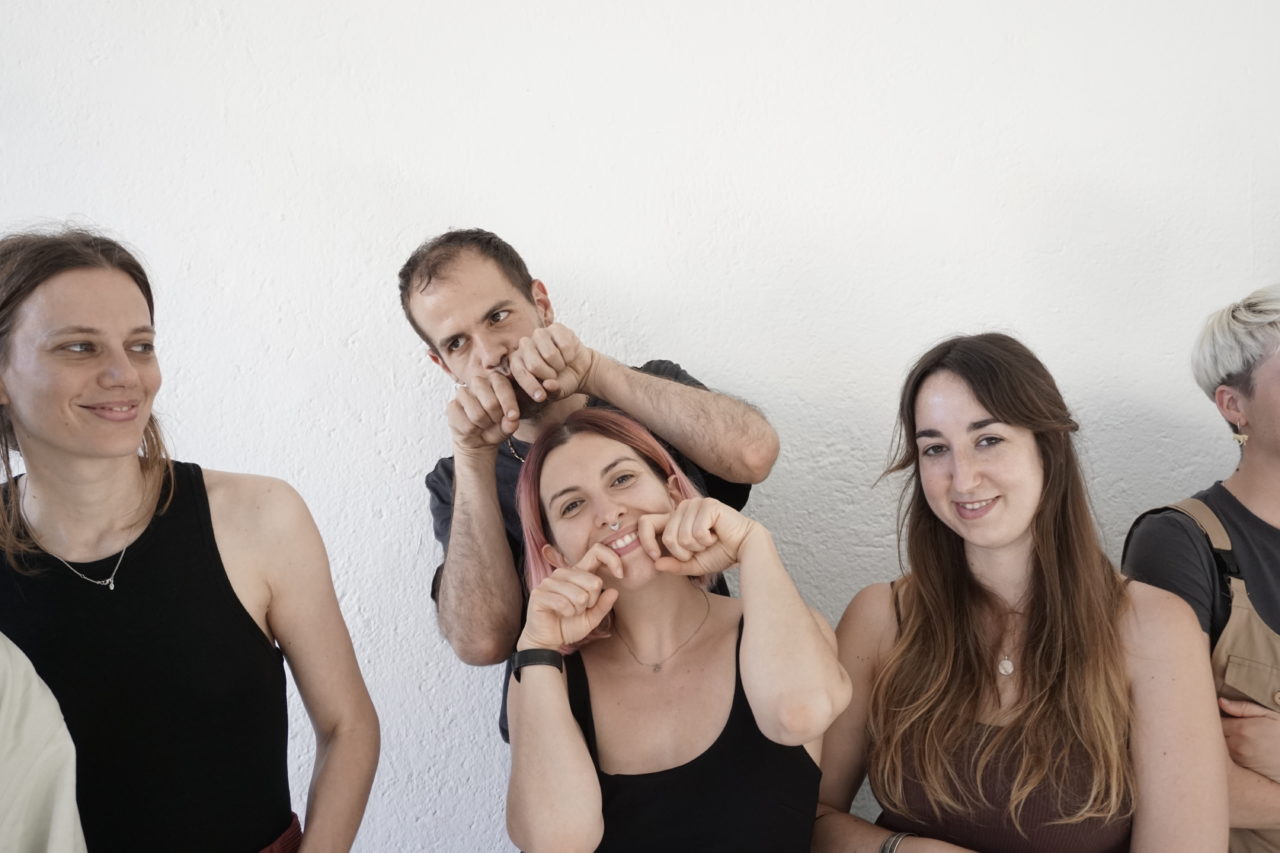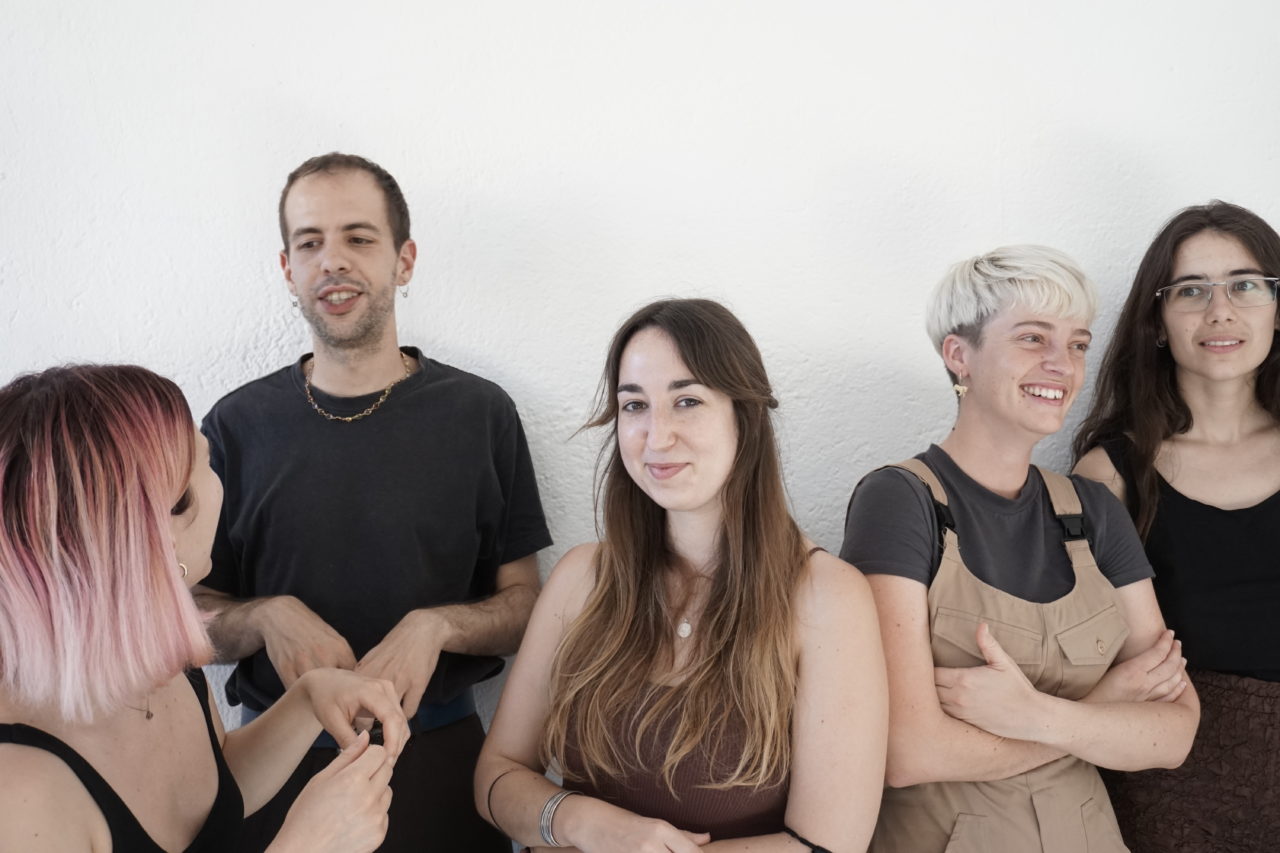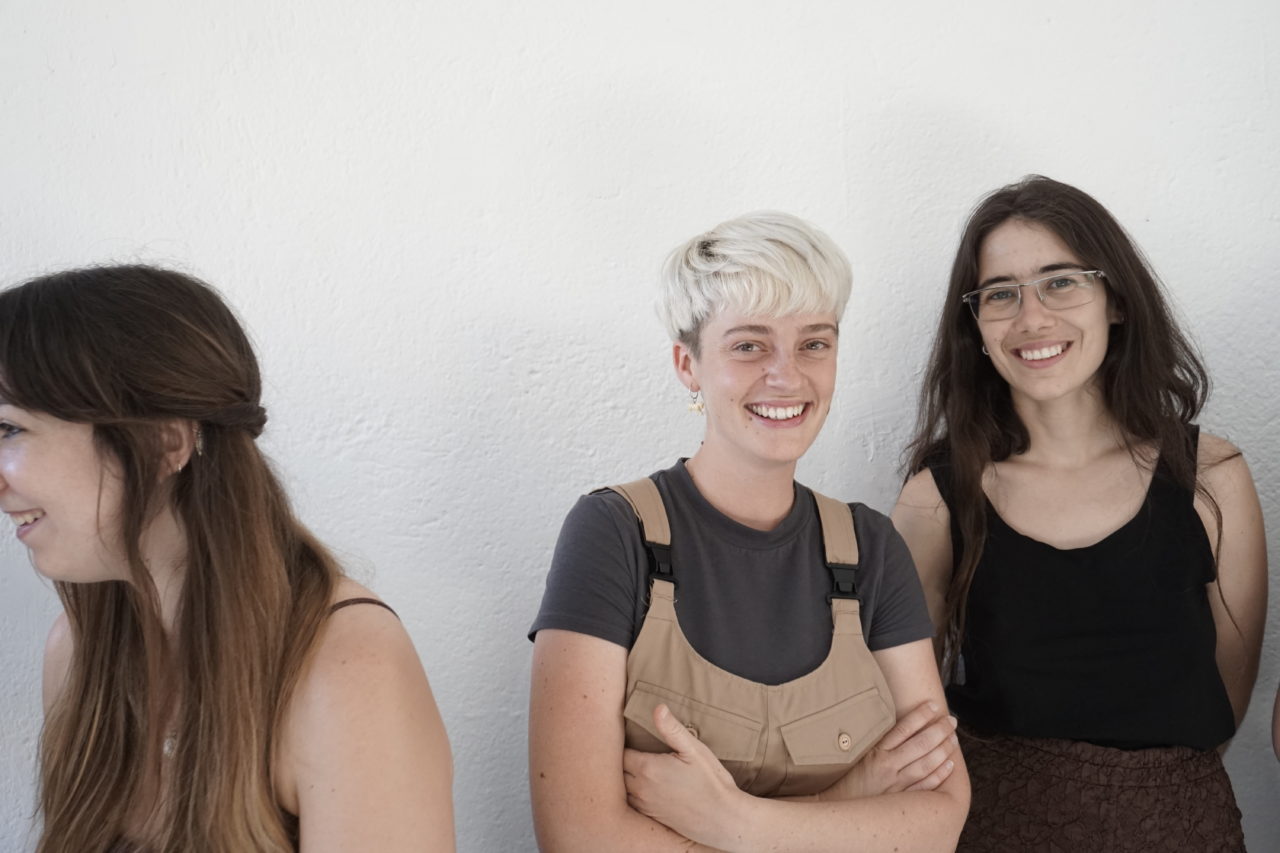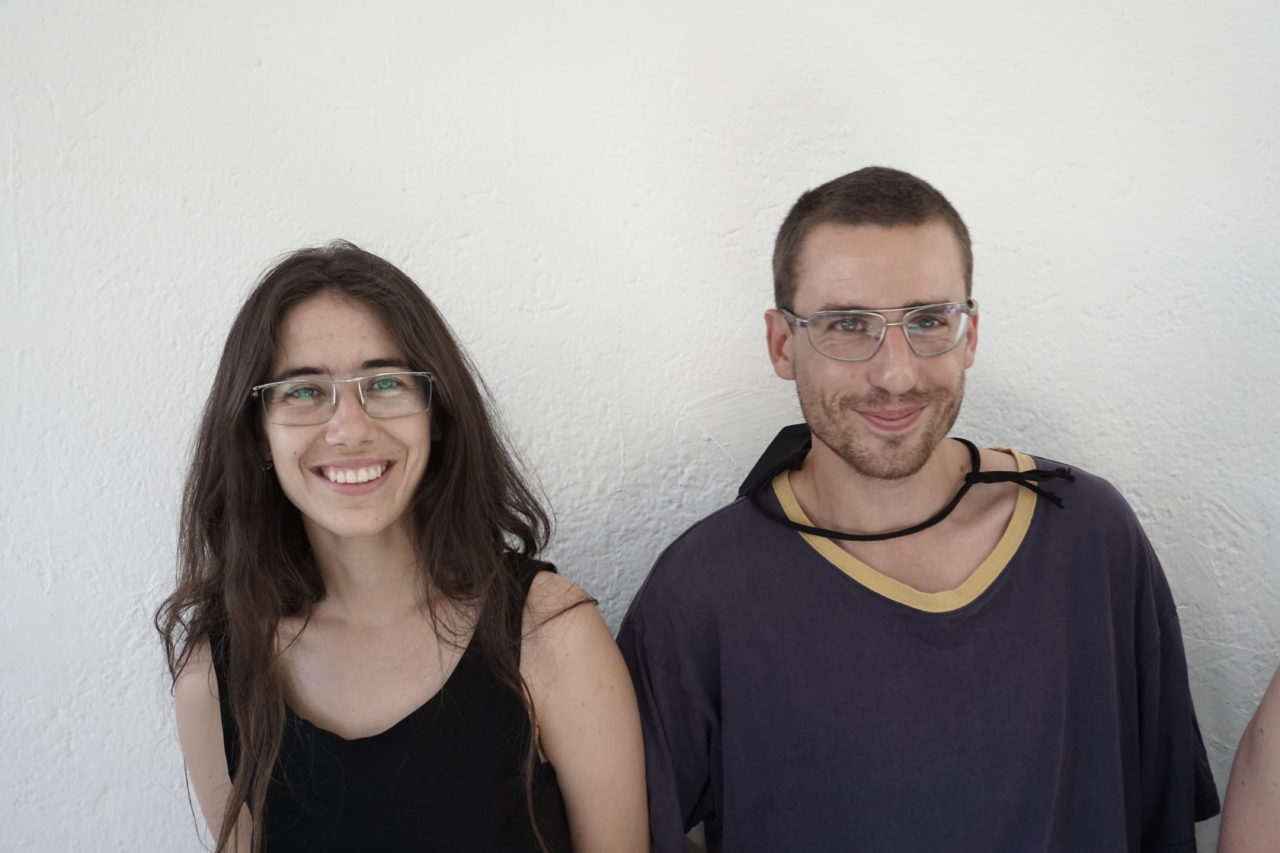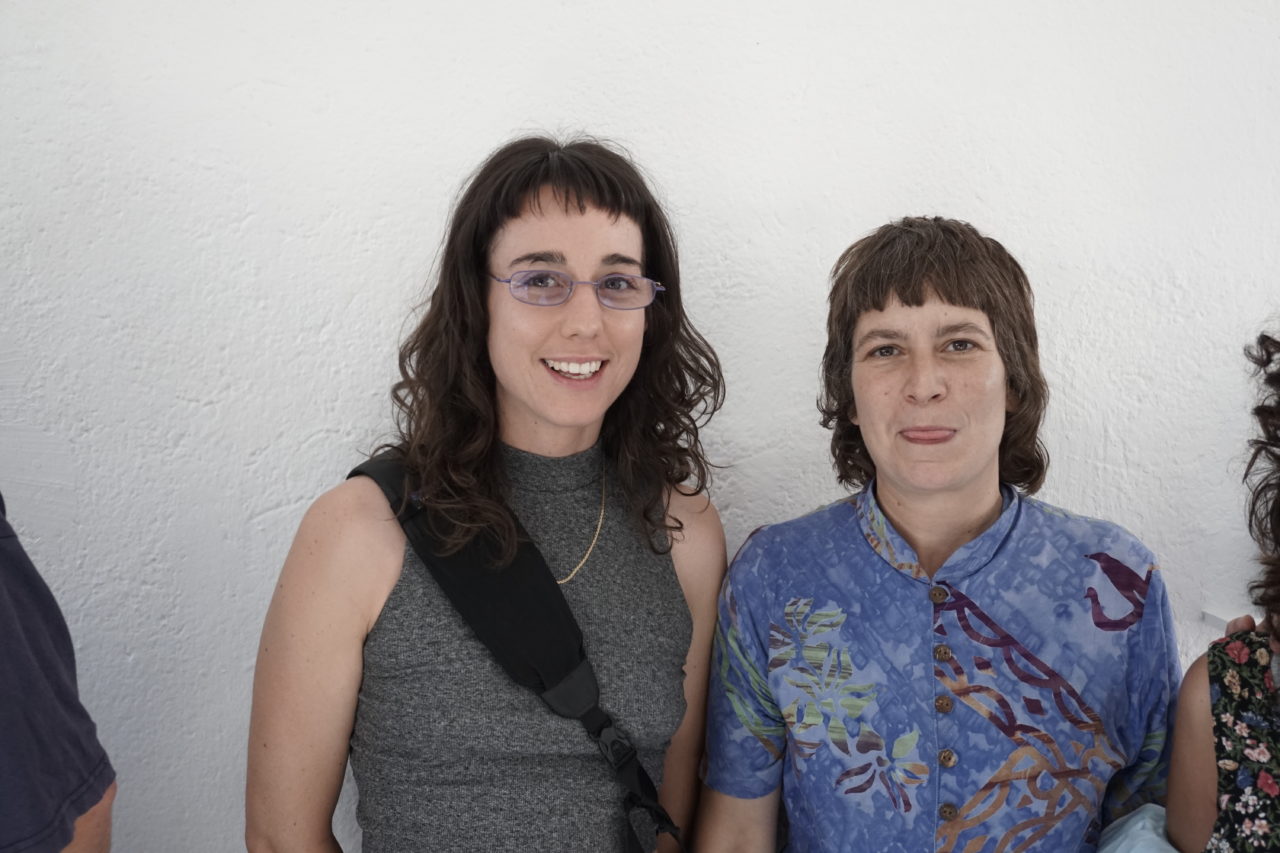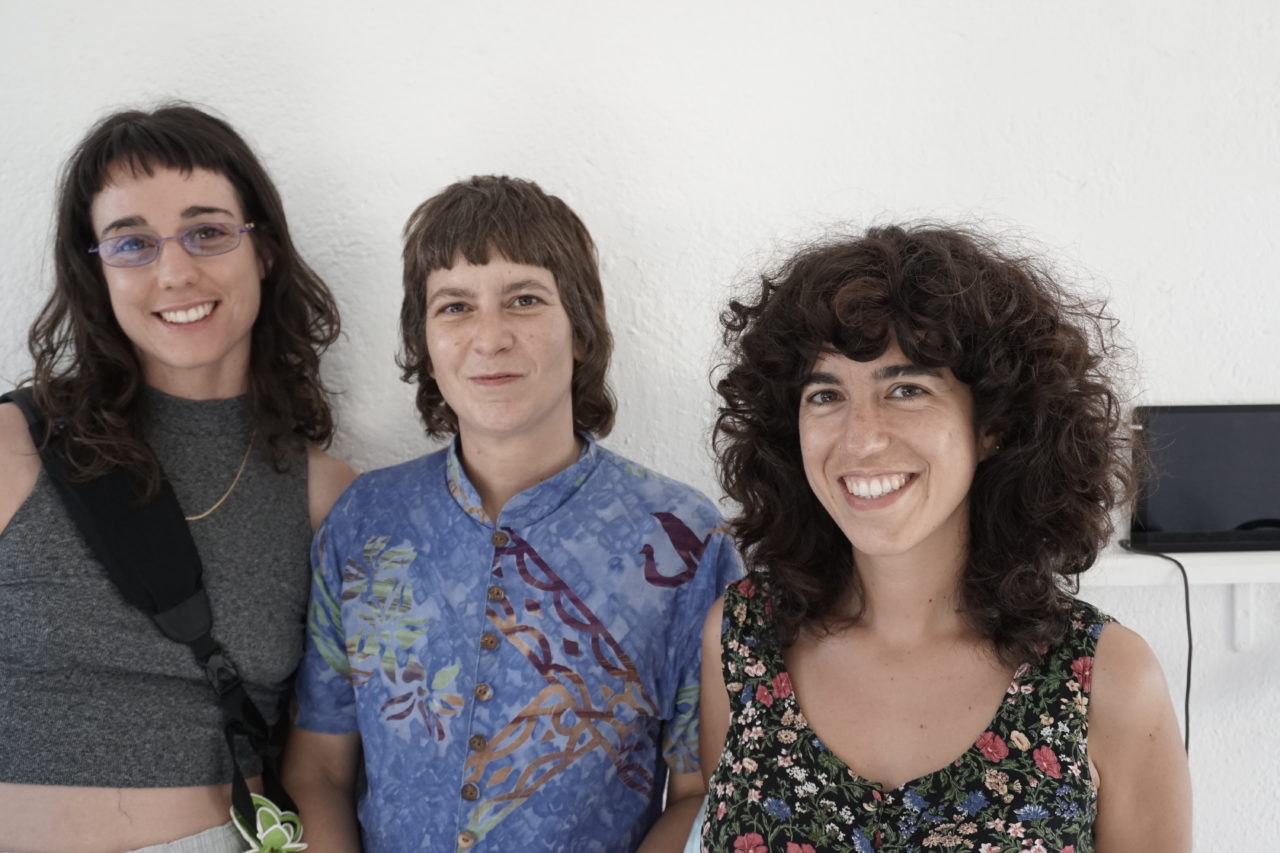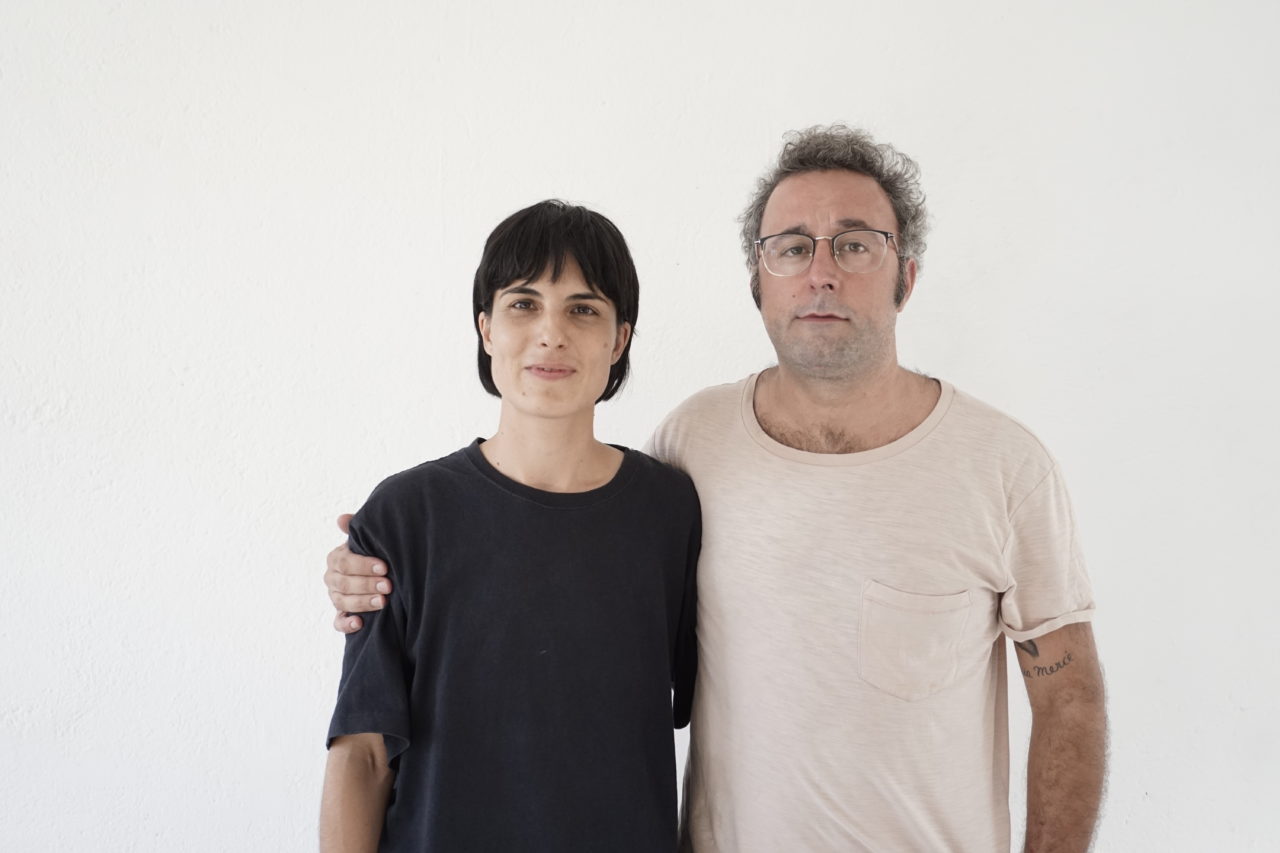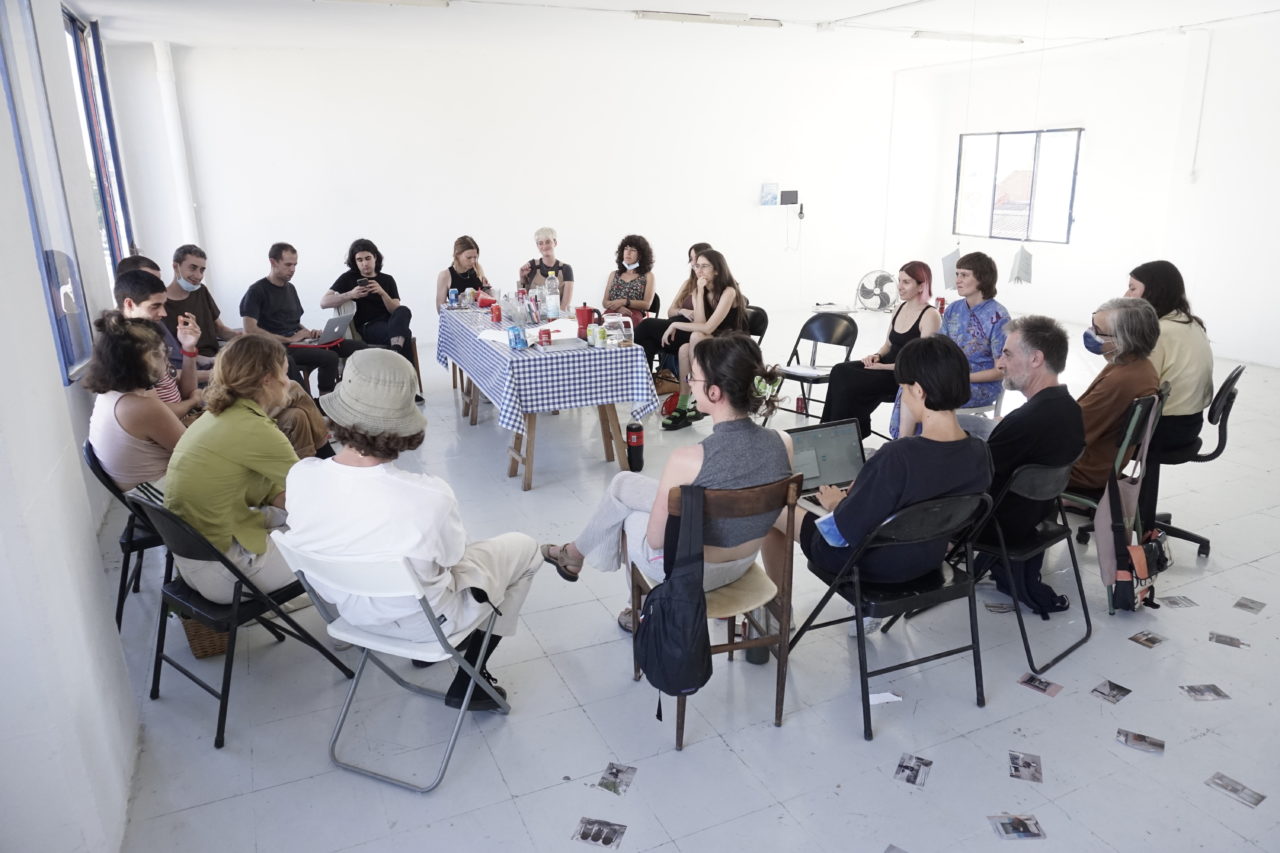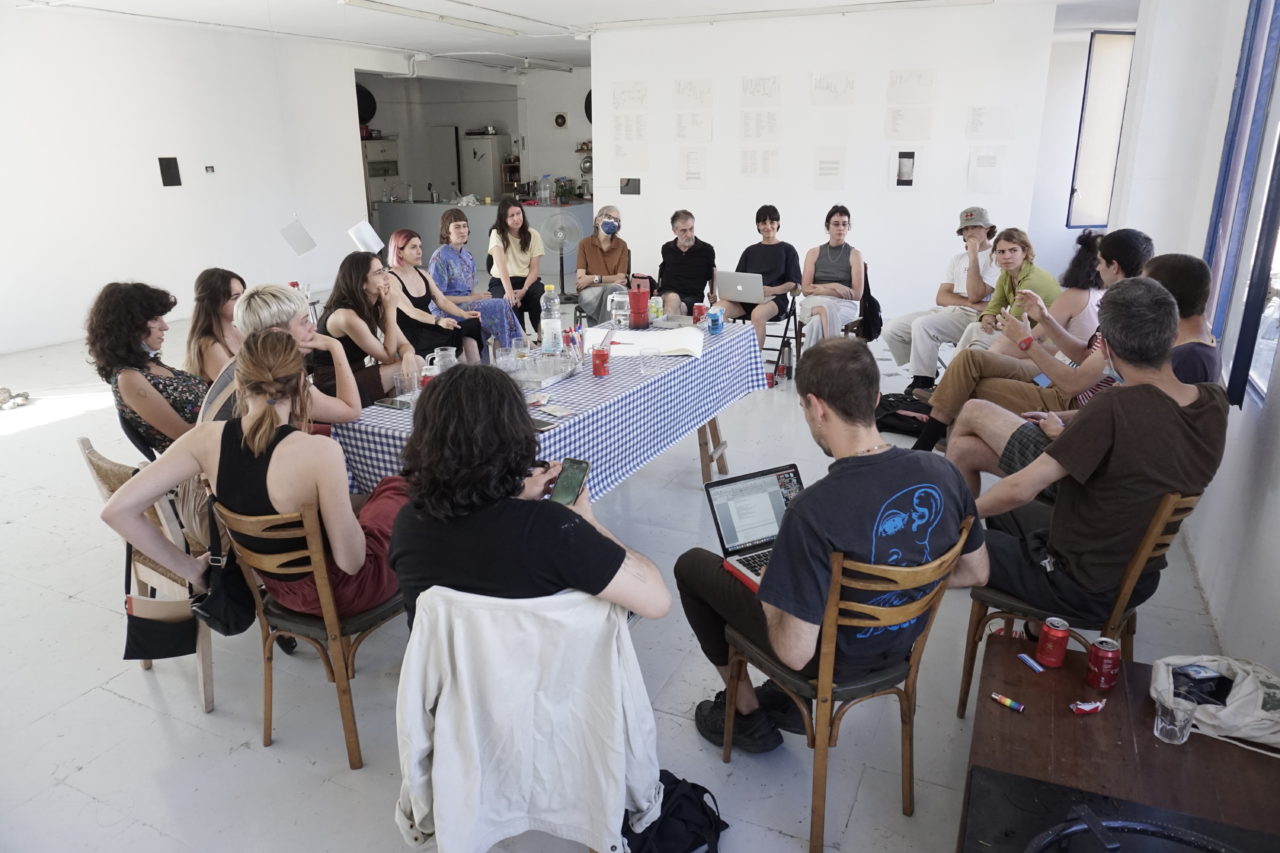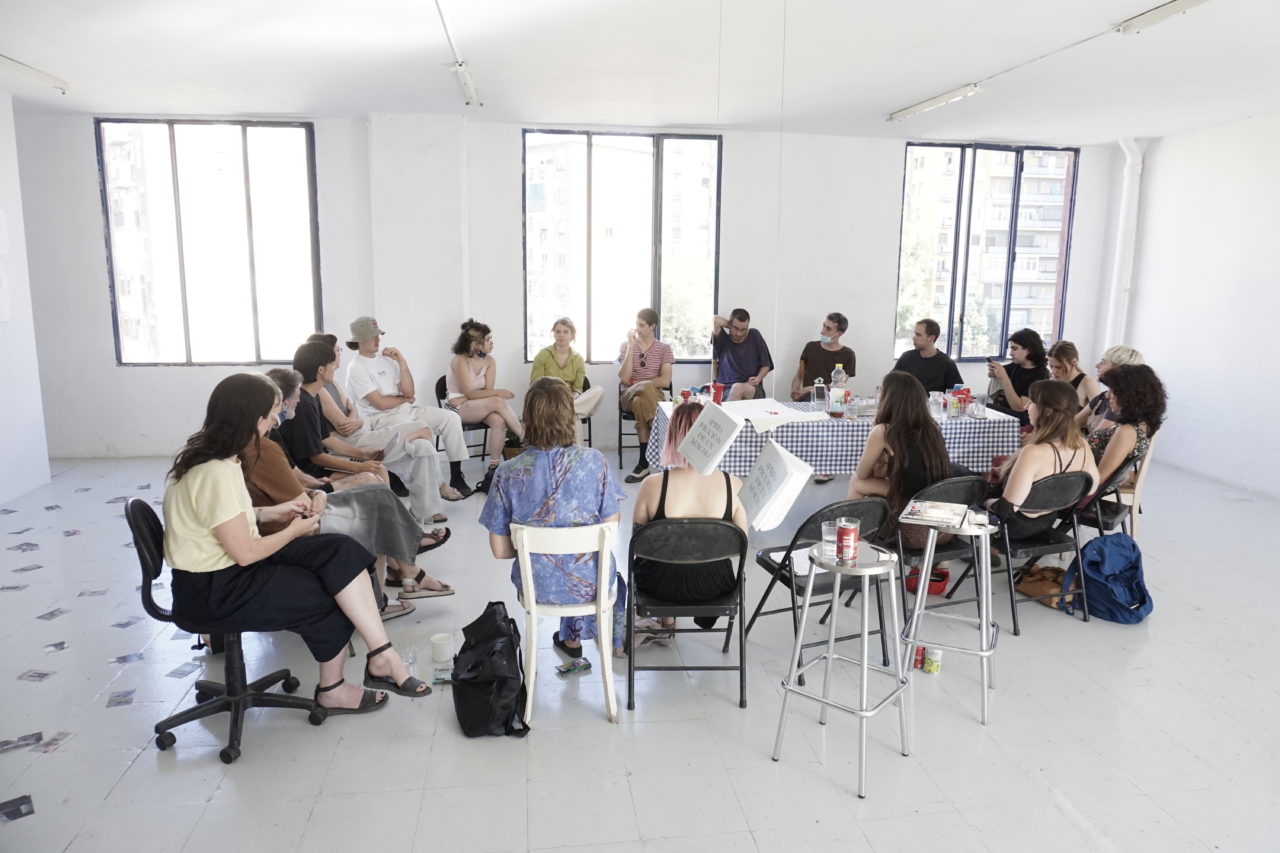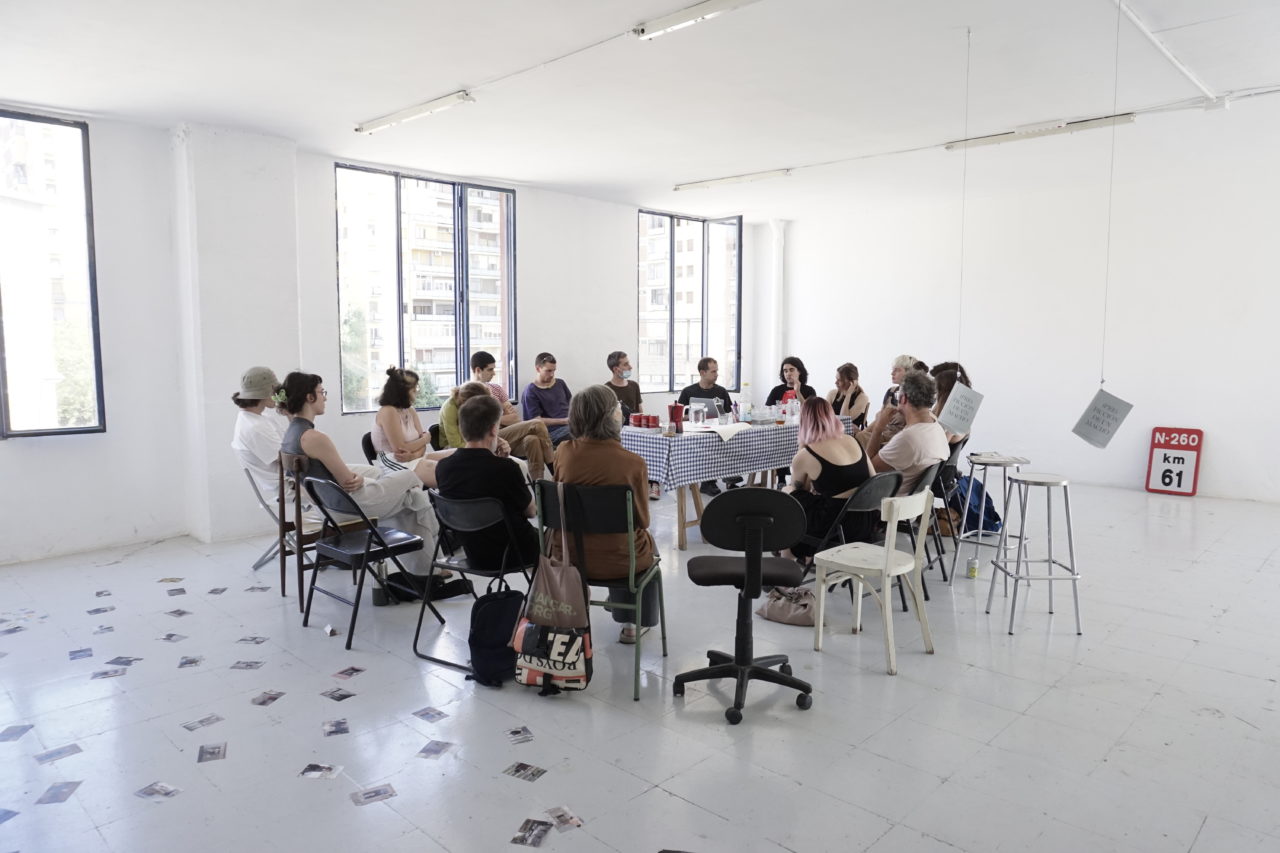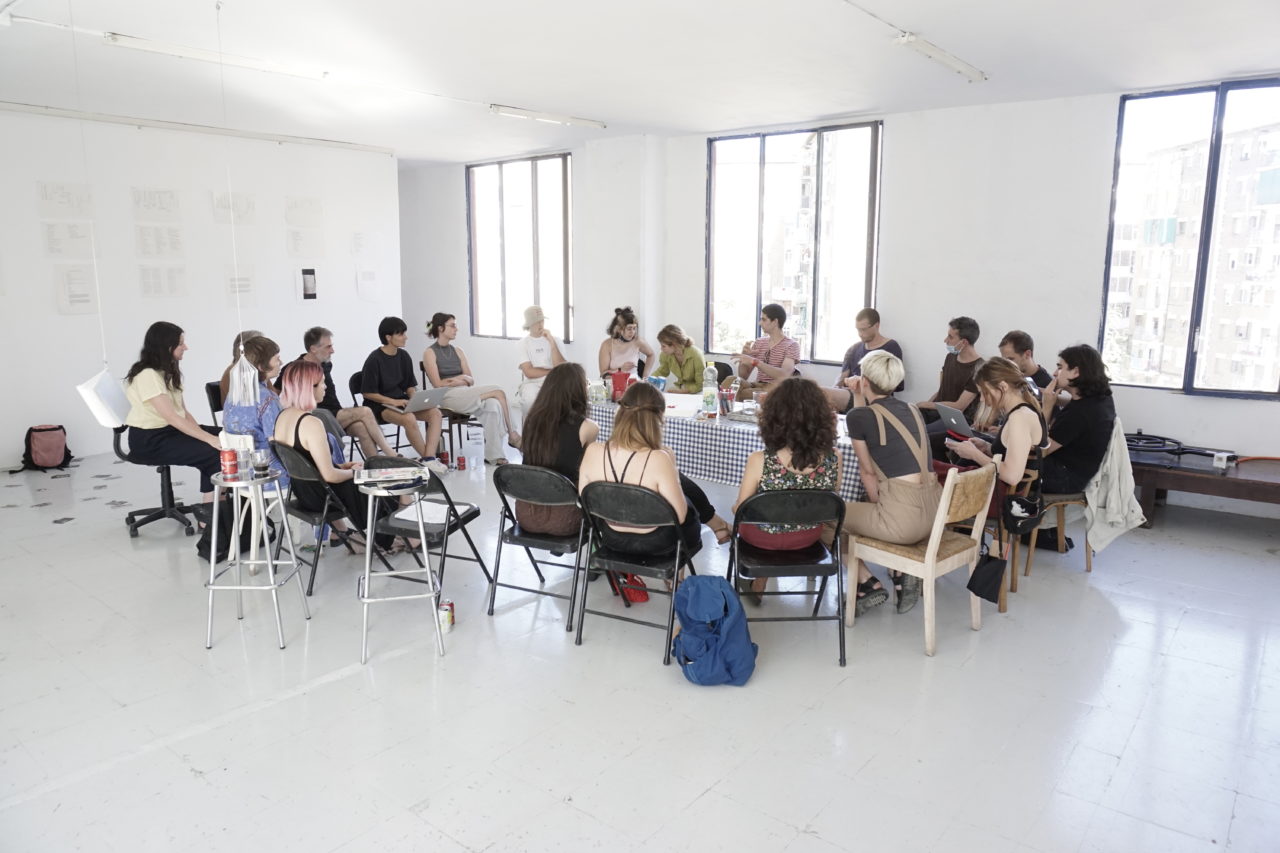info@graf.cat
‘In search of the spirit of Capacete’ by Dràcul·la
In search of the spirit of Capacete
Why share workspace with other people is the question that brought us together around a table at Halfhouse last July, in the context of the exhibition ‘Tallers compartits’ (Shared Studios) at the Joan Miró Foundation. Initially, the main reason is precariousness in general and the price of rent in particular, but talking about it, other different reasons appeared that seem to us give a broader meaning to the fact of sharing work spaces beyond economic issues.
In Barcelona alone there are several groups that were born with very different interests. Halfhouse itself, for example, is an independent project-space born in the spirit of Capacete, a residency space in Rio de Janeiro. They wanted to create a space where things could happen in a direct, lively, spontaneous way, and where immediate decisions could be made. After twelve years, three locations and countless plates of lentils, Halfhouse continues functioning “because getting close to people revitalises us”; they say that “seeing things, generating things nourishes us in an almost selfish way”.
Sociedad 0, on the other hand, sought to apply the knowledge they had learned in the field of design and created a shared space to live and test it in community, from the furniture to the organisational model itself. Yukidama Visits or La Peñuki (provisional name), instead, began by meeting to learn together, without any pretension of becoming a collective. The latter, however, at some point in their dialogues, the idea appeared of constructing a space with a pedagogical, though not curricular, aim, articulated through wide-ranging themes that cut across various contemporary disciplines. Everything is in the air.
There is this image of the classical artist (a little outdated by now), who works in his own studio, and discusses his work by talking in bars, and at night. Although the second of these has of course not ceased to happen, most of us have had to learn how to make invoices, among many other things. What is clear is that our economic possibilities do not allow us, in most cases, to have our own workshop. Some make the most of any corner to work, whether the Mercadona, a yoga mat or the Club Natació Atlètic-Barceloneta. Others are forced to share work spaces and this changes the way of understanding artistic practice and the way of being and perceiving the context. The fact of sharing a workshop leads us to think about the ways of organising ourselves as a group and to understand these groups as a representation of the structures each community wants.
In any case, it is very difficult for a truly collective and horizontal project to be born all at once, with a well-designed plan accurate to the millimetre; it tends to be more of a slow trial-and-error process. FOC and Malpaís (another name under review), both in the same building in the Zona Franca, are shared spaces that are just in an incipient or model-defining state. In fact, they are extremely different from each other, but they share a very interesting feature: their spaces are being reformed and fitted out at the same time as the project is taking place. In other words, they are being defined as their activity develops. And this situation allows them to rethink and redefine their model as it advances.
Even so, however different the workshops may be, certain profiles tend to be repeated in almost all of them. In the meeting we identified some types: the person who makes a mess, the person who doesn’t come, the person who takes care of everything, the person who is always there but doesn’t pay or the person who pays but doesn’t have time to go, the person who doesn’t want to change anything, the person who wants to do everything now, etc. And that means the rules of coexistence are a problem more or less shared by all the spaces. Society 0 explained that at their beginnings they proposed a short term system of rules, for example, someone asked to be able to work in silence and it was agreed that for 3 months it would only be possible to make noise from 12 to 18h. Instead, FOC has decided to divide the space into three: common spaces, private spaces and nobody’s spaces in which nothing can be accumulated, as they are rented as a form of financing. Antonymous to formalisation, Estructuras 3000, explained its rule of “better to do and undo, than not to do” and also its formula of asymmetrical horizontality, which consists in that when someone cannot pay her share, the others take it over until she is able to do so. None of these rules exist in writing, but rather as an unspoken pact.
Salamina, instead, has a document with well-written agreements, partly because it is one of the workshops that has been active for the longest time, has gone through various stages, has accumulated experience and the residents have changed. In fact, it is one more of the spaces founded by artists who left Hangar. Some time ago, they decided to focus their energy inwards, to dedicate it to caring for the people in the workshop. For this reason, although they had had a programme of events and diverse activities, they no longer have one, also as a way of positioning themselves in the face of the strong gentrification that L’Hospitalet de Llobregat has been suffering for some years now.
Sometimes, though, the problem is just the opposite. Dràcul-la is our workshop and also our home, as in the case of Halfhouse, Malpaís, Sociedad 0 or Perú 230, who have created a SCP to share the way of invoicing and also to be able to deduct the workshop VAT. Living in the workshop has both advantages and disadvantages, but above all it is a way of making significant savings. In our case, it was the fear of being eternally right or wrong, and losing the perspective of the outside world, that led us to open the doors and invite people to do long projects and slow processes, allowing us to look closely and get involved. The problem we have, like almost all of them, is money. We talked about figures ranging from €70 for a table, through €110 for workshop space, to €400 per person in a studio flat. In fact, financing was another big issue and several different formulas appeared.
For example, in Dràcul-la we contribute two thirds of the production, but the most common formula is to put up with what the residents pay. Other ways are to ask for grants, re-rent spaces, organise activities by charging tickets at affordable prices or the classic sale of beer for one euro. Other cases are those of Trama 34 and FASE, two shared workshops in L’Hospitalet de Llobregat that not only re-rent their spaces but also, on occasions, organise activities that externalise their practices, generating a network between different institutions in the area.
In general, many of us have to face the dilemma of how to carry out activities without making our environment or ourselves precarious. And that means thinking about other ways of giving and other ways of capitalising and collectivising the relationship between effort and profit. In this sense, Cabaret Internet can also be understood as a shared workshop space, which is financed through the sale of tickets and merchandising that accompanies the events.
La Escocesa, a project undoubtedly on a different scale than the rest of those present at the meeting, in its previous management, now with a new director, was analysing its governance and with the will to collectivise it. This was formalised in the redistribution of the budget earmarked for programming this past year (impossible to realise because of Covid) in internal grants for residents organised into working groups through which, receiving a salary, they are laying the foundations for a collective organisation and distribution of work for the coming years.
We don’t forget that many of the collectives and spaces that exist now are responses to others that were there and are no longer there or have mutated, such as Espai colona, El Palomar, El Cuarto del recreo, Passatge Studio, el Passadís, Saliva, La Cera 13, Múltiplos, Fireplace… and many others that we didn’t get to know but that have helped to lay the foundations for another kind of context less at the hands of the institutions.
In this sense, some still stammering proposals have also appeared that make us sigh:
– A person or team in charge of preparing the subventions and saving us the bureaucratic work, so that any group can have equal access to public aid. To eliminate competition between groups.
– Help in general for all those procedures that take up time and energy.
– To build and share a document that collects the experiences in the relationship with clients, institutions, suppliers or industrialists, as a form of collective self-defence.
– To think about the creation of a cooperative public warehouse that avoids workshops becoming furniture repositories and that revises the idea of storage and collection itself.
– Generate a tool through which we can invoice and quote when we need to.
– To have an index in which each person, collective or space lists those material resources (tools, screens, projectors, ….) that can be shared.
All this and more was discussed at Halfhouse, it was just an appetizer and some topics of discussion have been left open. All in all, it was a very nice day because it was exciting to see so many people dedicating an important part of their time to achieve a stronger, more united, pleasant and good (of goodness) art context. The general feeling of that day was that we didn’t want this to remain just a text or a meeting, but to be a starting point to continue to meet and give shape to these and other proposals. If anyone with these collective ideas, from art or outside of it, would like to participate in future meetings, you are all invited.
–
Text by Dràcul·la in collaboration with Graf. Dràcul·la is an independent workshop and exhibition space and also the home of the artists Mònica Planes and Àlex Palacín.
APROPOS are contents made about something that happens in our artistic context. This second publication of Apropos is developed in collaboration between the Fundació Joan Miró, Dracul·la and Graf, in the context of the exhibition ‘Shared Studies’. In this proposal, a meeting was organised to expand the case studies presented in the exhibition, including different shared artists’ workshops in Barcelona. The participants were people from the projects Halfhouse, Sociedad 0, La Peñuki, FOC, Malpaís, Estructuras 3000, Salamina, Dràcul-la, Perú 230, Yukidama Visits, Cabaré Internet and La escocesa.
NOTE: The collectives in the photos are not all of them. And the people who appear are not all those who make them up, nor those who represent them. Some came because of physical proximity, chemistry and that thing called intuition that we sometimes rely on to put people together in one place.
The map shows those spaces that came to the meeting and have physical space, to make their location on the margins visible.
–
With the collaboration of:




